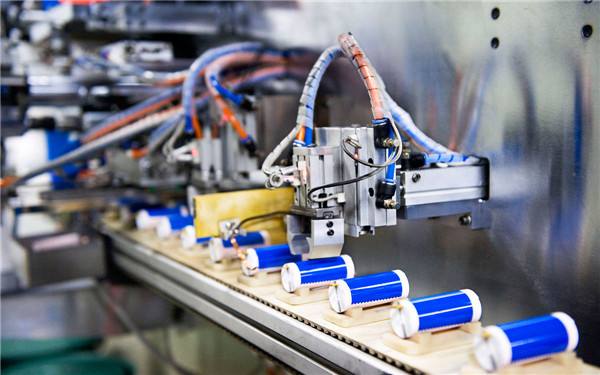Latest Lithium-ion Battery Technology Discussion
Oct 24, 2019 Pageview:1245
Since 1991 lithium batteries have been the ultimate power source for many and significant electronic devices around the globe. For over a decade now, lithium cells have been the raging trend on power storage because of their high energy densities. When compared to its predecessors, such as lead-acid and nickel-based batteries, lithium cells have shown outstanding performances in energy solutions.
However, as much as these battery packs are widely worshipped for their significant contributions, one cannot overlook the fact that we are in desperate need to move on to greener pastures. Technological revolutions have demanded the creation of more advanced versions of these cells or even better and much more powerful alternatives. With the fast-growing evolution of smartphones, smart homes, and smart wearables on the rise, the need for a power revolution becomes necessary.
Lithium-ion batteries have been limited in power for an extended time. Major technological industries and companies have long reported the limitations of these cells when it comes to powering bigger and more powerful machines. However, the future looks bright as scientists and manufacturers have been able to note these complaints and come up with modifications that are sure to solve such issues.
What is the latest lithium-ion battery technology?
New advances have been made on lithium-ion technology to help curve the issue of energy limitations and provide safer as well as more effective means of energy production. In this age, it may take a while before acquiring a week’s life out of our cell phones without charging them. While lithium-ion batteries haven’t been pushed to such limits yet, they are sufficiently capable of a day or two worth of energy for your device. With time, technological progress will positively drive the cells to surpass such limits.
New and improved lithium-ion battery packs have emerged, providing a significant leap in the advancement of battery technology. A large number of these cells tend to focus more on either the use of brand-new battery cells or the utility of multiple voltages. Others opt to maintain backward compatibility by using parallel batteries in their battery pack platforms.
This is a fascinating age for technological revolutions with unique and spectacular advancements made on lithium-ion that will blow your mind away. If such improvements are majored or reproduced at a large-scale focus, we might experience a brilliant and much needed to peek into the future. The following are some of the latest improvements on lithium-ion batteries:
1. Nano-sized lithium-ion cells
Nanotechnology is the engineering or creation of functional systems at molecular scales. In other terms, it is the study and application of extremely tiny things across the fields of science. Just like in science-fiction movies, the mass production of energy is linked to the ‘nanotechnology’ term.
Scientists are pursuing the creation of nano lithium-ion batteries, which comprise small nanobatteries providing a larger charging area while decreasing transfer distances. This, in turn, allows the battery to undergo more charge cycles. With such technology at our disposal, we are expecting a broad application of electronics that we are yet even to imagine.
2. Graphene on lithium-ion batteries
Lithium-ion batteries might be able to store large amounts of energy, but the amount diminishes with time on every charge cycle because of electrode wear. Graphene is a compound or allotrope of the element carbon. It is therefore coated on the electrodes to boost both the capacity and charge rate of lithium-ion cells. This ultimately increases the lifespan of lithium-ion batteries.
While graphene allows more ion transfer between the electrodes, therefore, reducing charging time for the batteries, it increases the distance traveled by the ions. Research has managed to come up with solutions to curve the problem thus making graphene a very promising allotrope.
3. Solid-state batteries
A reliable state battery can be defined as a battery technology that uses both solid electrodes as well as electrolytes in place of the liquid or polymer gel electrolytes. This technology is seemingly safer than regular lithium batteries and provides much higher energy densities. This advancement makes good use of the more available sodium element, unlike lithium. With time, solid-state batteries might dominate the industry, with its only flaw being the fact that it is costly.
4. Self-healing lithium-ion batteries
The term itself seems unbelievingly real. Scientists have developed a lithium-ion battery that instills a self-healing technology principle to help improve the efficiency and performance of the cells. The principle does not apply to the structure or material of the lithium-ion battery, but rather its ability to store energy.
These inventions open a new opportunity for creating the next generation of lithium-ion batteries. No battery is limited, as research has proven that the revolution of lithium battery technology is just getting started. Soon better alternatives might even come up.
Which is the most long-lasting battery?
Did you know that the essential specification for any portable electronic device isn’t the processor speed, display quality, or even its storage capacity? It is rather how long one can use the device before it’s drained of all the charge and therefore needs an outlet for a power source.
For many years we’ve heard whispers of a new and improved lithium battery with exceptional performance, but in the end, it turns out that it’s much the same. The only difference may appear on a small range of extended lifespan when compared to the rest.
However, the introduction of solid-state batteries seems to give hope to the battery industry at large. This technology can pack more energy while at the same time, presenting less of a safety risk by using solid electrolytes instead of the flammable liquid ones.
Can lithium-ion batteries be replaced?
This is undoubtedly a big, yes. The same question was probably asked with nickel-based and lead-acid battery generations. Lithium-ion batteries have the main limitation, which is the unavailability of lithium in relation to the safety problems faced. While scientists are looking to improve such technology, others are making positive progress with inventing better alternatives for the future.
Solid-state batteries seem to be in the lead for better lithium battery replacements with its superior qualities that surpass every limitation.
Final thoughts
Lithium-ion technology, like its predecessors, will soon be a thing of the past. It might take some time, but eventually, we will get there. The new advancements for the batteries have, however, shown prowess in trying to curve the limitations associated with the cells.
- Prev Article: How to Charge Lithium-ion Battery with USB?
- Next Article: The Best Lithium-Ion Battery Backup UPS
Leave Message
Hottest Categories
-
Hottest Industry News
-
Latest Industry News











